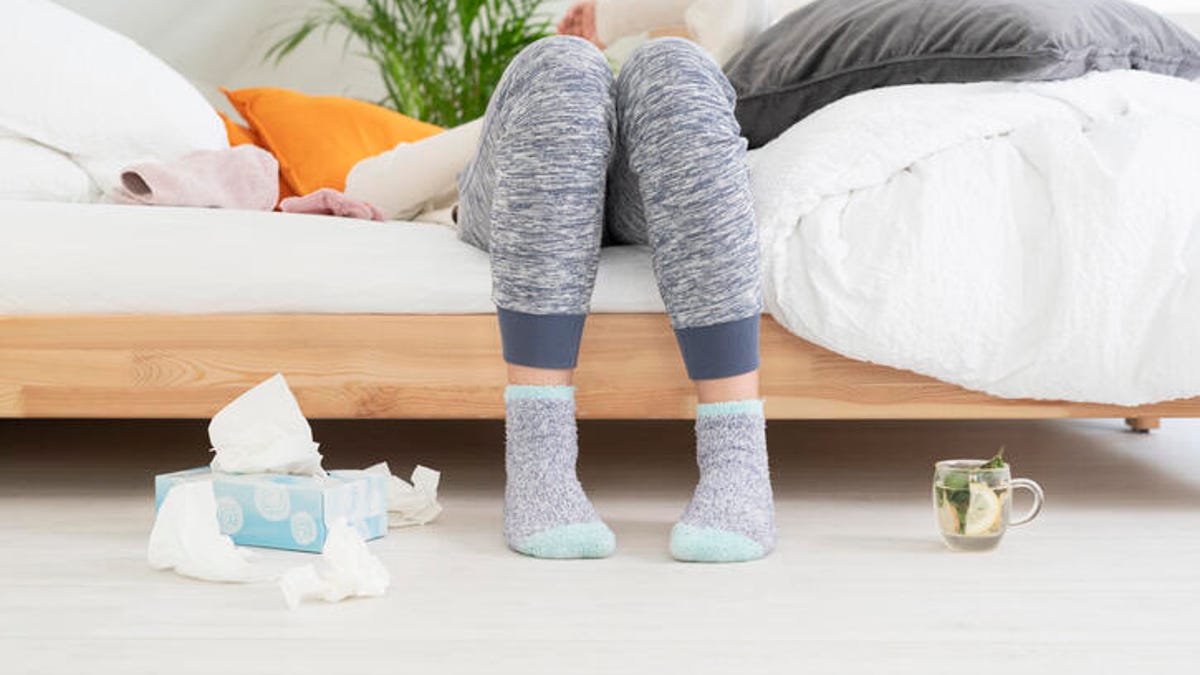 Why You Can Trust CNET
Why You Can Trust CNET 5 Essentials to Buy When You're Already Sick (or Trying to Avoid It)
Avoid the flu and sniffles with these essential products.

There are products to help you feel better or avoid getting sick in the first place.
Winter is just around the corner, which means cold and flu season is almost upon us. No one wants to get sick during the holidays, so now is the time to lean into preventative measures to avoid that pesky cough or runny nose. Stocking up on the tools that help prevent getting sick or assist in getting rid of a cold fast is a smart choice.
Speaking of flu season, the best way to up your immunity is to get a flu shot. Additionally, properly washing your hands after using the bathroom, before and after handling food, when touching a potentially contaminated surface or arriving home after a long day at work is a proven method to keep yourself and your loved ones healthy.
While you may not think you can get awfully sick, it's a helpful choice to keep others safe by slowing the spread of germs. You may be back to tip-top shape after a couple of days in bed with the flu -- or after a few weeks of downtime thanks to a coronavirus infection -- but some people with weak or compromised immune systems, including babies and the elderly, could become deathly ill or perish after contracting the illness. So taking any sickness seriously and taking adequate steps to protect yourself and others is more helpful than you may realize.
To help you avoid getting sick, we've consulted a doctor on the best products when it comes to flu essentials. Use the following products to prevent viruses like the cold, flu or COVID-19 to help you feel better faster when you are experiencing flu symptoms and to keep others healthy. Keep in mind that many of the products below may still be hard to find due to continued demand.
We all know that germs and bacteria can hang out on objects like doors, subway rails, credit card machines -- really any surface that many people touch every day is going to be teeming with germs. It's not always realistic to completely avoid touching every potentially contaminated surface, so it's smart to carry around hand sanitizer to use immediately after touching things or to use frequently if you are coughing or sick. Both spray and gel hand sanitizer work, so long as they're alcohol-based.
"The CDC recommends using an alcohol-based hand sanitizer with at least 60% alcohol," Dr. Jennifer Caudle, a family medicine physician, tells CNET. "This will help reduce microbial counts and kill many harmful germs that could infect you with cold and flu viruses."
Using tissues when you're sick or have nasal congestion is the most sanitary option. You can cough, sneeze or blow your runny nose into them and then throw them away. Avoid using your hands or sleeve because that can encourage the spread of germs.
"I always try to keep pocket pack tissues on me, as well as tissues at my desk at work and in my home in case I start to get the sniffles," Dr. Caudle says. If you're plowing through lots of tissues, you can try tissues with lotion like Puffs Plus. These will keep your nose from getting that awful raw, sore feeling that comes from blowing your nose from the seasonal flu, a cold or allergies.
For most colds, medications and other remedies can't cure you, but they can offer some relief from symptoms, such as a scratchy throat, stuffy nose or congestion, while your body fights the virus.
If you have a cold and cough, taking over-the-counter medicines can help relieve the symptoms. Look for a medicine that has a pain reliever for body aches or headaches, and one that can also help with cough, sore throat, nasal congestion, body ache and other flu and cold symptoms. Products such as Dayquil and Nyquil don't prevent the flu but are made to treat multiple symptoms.
Sleep and rest are important to help you get better, so if you're having trouble getting a good night's sleep, you can take nighttime version of the medicine.
If you have the flu, your doctor might prescribe Tamiflu, an antiviral medication. But it must be taken very early on.
Disinfecting wipes are another tough-to-find item right now, but they will hit stores again at some point.
"I am huge on wiping down any and everything," Dr. Caudle says. "I always keep Lysol wipes on hand to disinfect surfaces to kill germs and help prevent the spread of cold and flu viruses." Wiping down surfaces in your home is especially important if someone around you is sick because it prevents the spread of germs to others.
Focus on common areas that get a lot of traffic, like the kitchen and bathroom, as well as objects like doorknobs, light switches, banisters, remote controls, phones and car interiors. Also keep wipes at your workspace.
Hand sanitizer is great to use when you're on the go, but washing your hands frequently is your best bet when it comes to getting rid of germs that make you sick. "Be sure to wash your hands frequently with soap and warm water for at least 20 seconds each time," Dr. Caudle says. "Use hand sanitizer if soap and water is not available."
Keeping your hands clean is important, but also try to avoid touching your face, nose, eyes or mouth throughout the day. This prevents you from picking up a virus and transmitting it to someone else.

